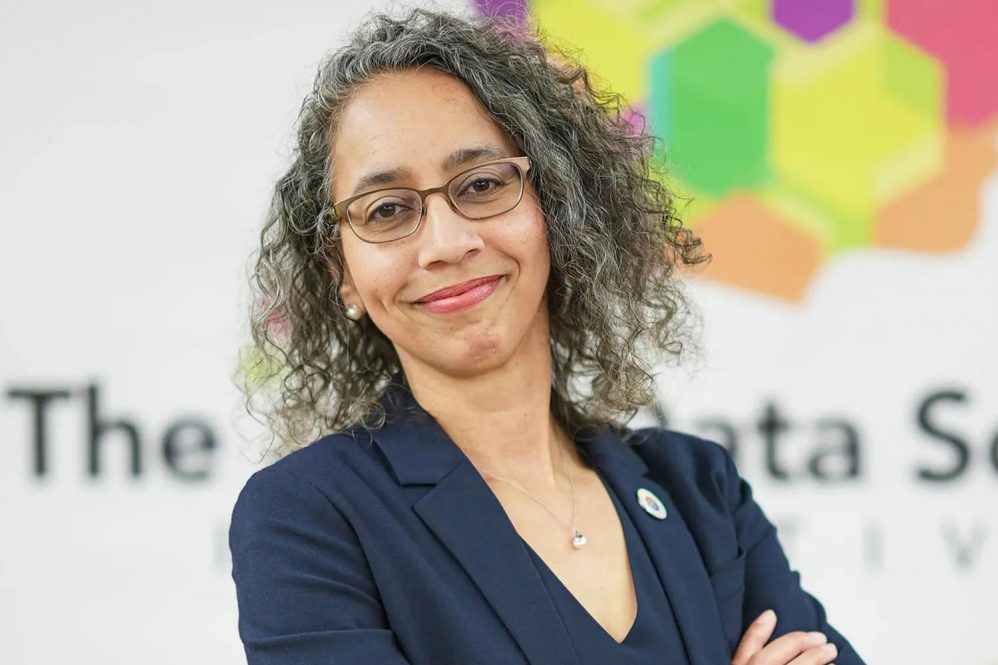Speaking last year with the late UConn professor Joseph McKenna, he recalled a colloquium on mathematical studies of bridges he’d once given at Bryn Mawr College. He happened to run into Talitha Washington, one of his graduate students, who was there visiting friends. They said hello and McKenna went off to his colloquium.
“Usually these talks are fairly dull, with about five or six faculty members who attend out of a sense of obligation more than anything else,” he said. “But when I came to give my talk, somehow Talitha, in wandering around the department, had rounded up 10 to 20 undergraduates to come to my talk.”
It must have taken a certain amount of courage to go into a completely strange place and gather up all those people, said McKenna. “That’s just the way she was. Talitha made things happen. She wasn’t intimidated or awed by anyone. She said, ‘Here’s a great talk, let’s all go to it.’”
Making things happen has been a way of life for Washington ’98 MS, ’01 Ph.D. She holds fast to the phrase “I’ll find a way or make one,” which is the motto of Atlanta University (now part of Clark Atlanta University), the oldest historically Black university in the South, where Washington is a professor of mathematics.
It’s also her mantra, she says, as she directs the Atlanta University Center (AUC) Data Science Initiative to bring underrepresented voices into the exploding field of data science. She likes how so much lives in the statement: possibility, resolve, carving a new path.
“We have all these examples of how data science has negatively impacted Black people,” she says, noting facial recognition software and all manner of algorithms where the science can lead to more harm than good “if data sets aren’t culturally relevant or if they aren’t taking into account all the nuances. Last year there was a big cry from the math community to stop doing work with the police because of predictive policing models built on biased algorithms. The consciousness of the data science community was born out of what happened to George Floyd and others.”
At the AUC, Washington is flipping that narrative, working to “develop talent and become a significant producer of African Americans with expertise and credentials in data science,” she says. “We also want to create new knowledge and lead national efforts to address race, gender, and social justice aspects of data science, focusing on topics that impact Black America.”



